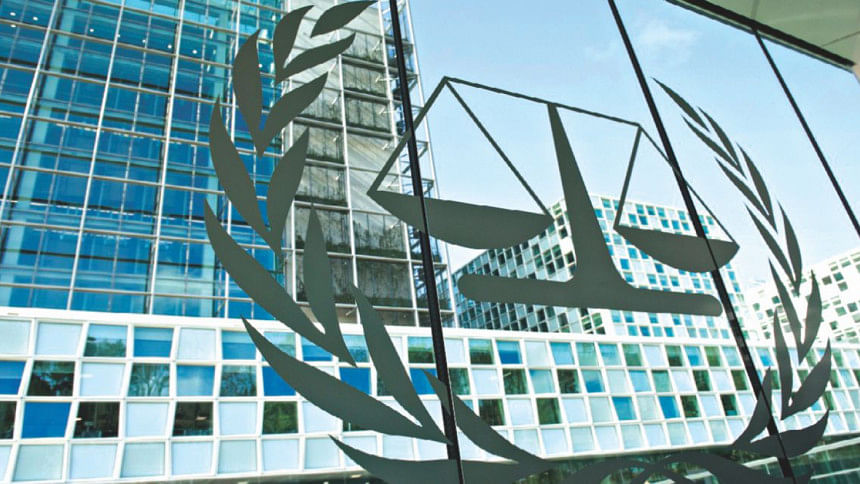ICC and Myanmar: Impunity ended or extended?

The recent decision of the International Criminal Court's Pre-Trial Chamber recognising the Court's jurisdiction over Myanmar's alleged crimes against humanity has been hailed as breaking new ground in the Rohingya crisis and in the pursuit of international criminal justice more broadly. As Myanmar is not a party to the ICC Statute, it was previously understood that the Court's jurisdiction with respect to the State's alleged international crimes could only be triggered by a UN Security Council referral. However, the possibility of a UNSC referral remains essentially theoretical, given the high probability of Russian and Chinese vetoes preventing its passage. In a bold stroke of innovative adjudication, the ICC has held that it can hear the case of crimes against humanity by Myanmar officials alleged to have deported the Rohingya to Bangladesh.
The Court accepted an analogy between deportation and cross-border shooting in that the crime is a continuing act which commences in one State but achieves completion only in the territory of the other State. Thus, the alleged crime of deportation was completed in the territory of Bangladesh, which is a party to the ICC Statute. The decision allows ICC to exercise jurisdiction with respect to acts executed by non-State parties' nationals within their own States, provided the relevant crime as a continuing act, or an element of the crime, ends in the territory of a State party.
This new frontier for international criminal justice has been greeted with effusive praise from key actors calling for the resolution of the Rohingya crisis. UN Human Rights Chief Michelle Bachelet has described the decision as an “immensely important step towards ending impunity”. The judgment has also received ringing endorsement from the likes of Kingsley Abbott, senior legal advisor at the International Commission of Jurists and Adilur Rahman Khan, vice-president of the International Federation for Human Rights.
However, while the ICC's assumption of jurisdiction appears to be progressive, it produces certain arbitrary distinctions that can potentially exacerbate injustice and further endanger the Rohingya. The first and most elementary problem lies in the definition of the crime itself.
According to Article 7(2)(d) of the Rome Statute, for the crime against humanity to be established on the ground of deportation, the deportees must be lawfully present in the area wherefrom they are deported. This is significant because part of the Burmese strategy for the eventual erasure of the Rohingya from Myanmar was the denationalisation of this people and their designation as illegal immigrants. Hence, the deported Rohingya were technically not lawfully present in Myanmar. As such, it is the prerogative of a sovereign State to deport those who are as a matter of law “alien invaders”. On this reading of international criminal law, it is unclear how an allegation of deportation as a crime against humanity can be sustained on the present facts.
Secondly, war crimes have also allegedly been committed in the Kachin and Shan states of Myanmar but these fall beyond the Court's self-proclaimed competence given that these were perpetrated entirely within Myanmar's territories. For the Rohingya deportees themselves, justice can be rendered only in the case of the subset that reached the territory of Bangladesh, not those who died at sea, happened to seek safe haven elsewhere or are detained in Myanmar's permanent “refugee” camps.
The potentially most damning consequence of the ICC decision is one that is most obscured beneath the veil of secrecy that has for so long shrouded the “slow-burning genocide” of the Rohingya. The convenient narrative has been that the transition of Myanmar from authoritarianism to democracy will eventually resolve the plight of the Rohingya. However, the narrative both misinterprets the history of the crisis and misunderstands its cause. While Myanmar has long been in the throes of violent ethnic conflict and military oppression, the different ethnic groups and the military are united in their hatred of the Rohingya. Thus far, massacres have been directed towards ethnic cleansing, seeking to compel the Rohingya to leave the State so as to build a nation of ethnically Burman, or at least Buddhist religious identity. This vision of citizenship entails a goal of expelling the Rohingya and it justifies continued persecution on the basis that the Rohingya should “return to their country”. If the ICC intervention establishes that Myanmar is answerable for atrocities against the Rohingya only to the extent that the crimes reach the shores of a State party, the Court is effectively incentivising Myanmar to abandon its relatively lenient approach of expulsion and switch instead to a policy of containment and extermination.
The Rohingya are thus offered a fractured and unequal justice that exposes them to further danger while the ICC itself faces a potential diminution of relevance and legitimacy. It is clear that in certain respects, the international criminal justice system requires reforms of practice while in others, nothing short of a fundamental revision of the system's doctrinal underpinnings is needed. As the Court weaves more haphazard stitches in the patchwork of international criminal justice, what is at stake is not merely the Court's coherence or jurisdictional coverage, but its pledge to end, and not extend, impunity.
THE WRITER STUDIES HUMAN RIGHTS AND TRANSITIONAL JUSTICE, TRANSITIONAL JUSTICE INSTITUTE, ULSTER UNIVERSITY, UK.

 For all latest news, follow The Daily Star's Google News channel.
For all latest news, follow The Daily Star's Google News channel. 



Comments